Find Help
More Items From Ergsy search
-
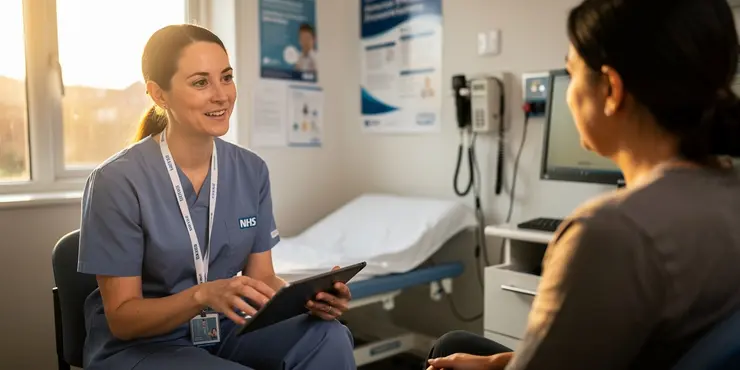
What is norovirus? (Diarrhoea and vomiting bug) | NHS
Relevance: 100%
-
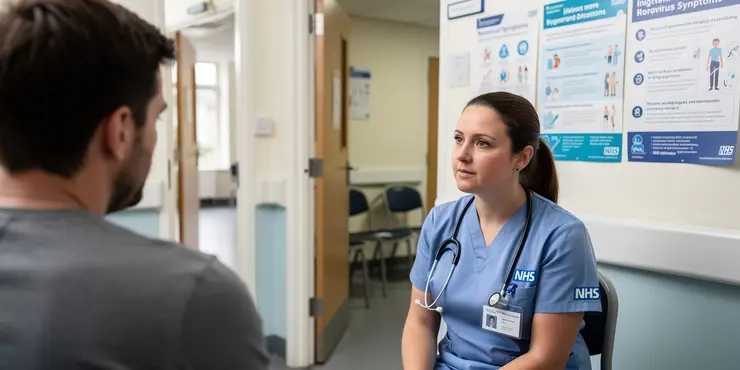
What is norovirus? (Diarrhoea and vomiting bug) | NHS
Relevance: 96%
-
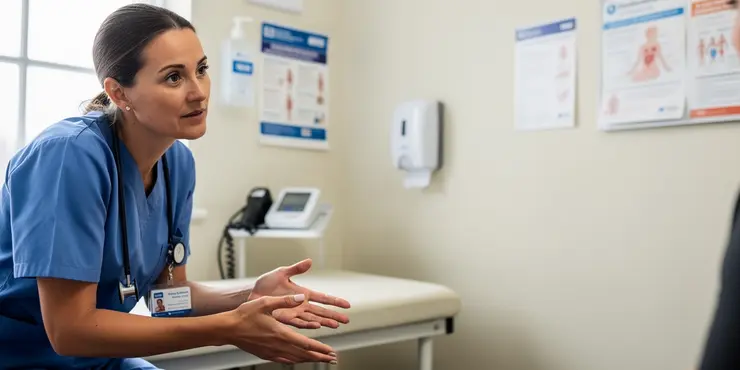
Advice for diarrhoea and vomiting
Relevance: 66%
-

My child has vomiting and diarrhoea - what do I do?
Relevance: 58%
-
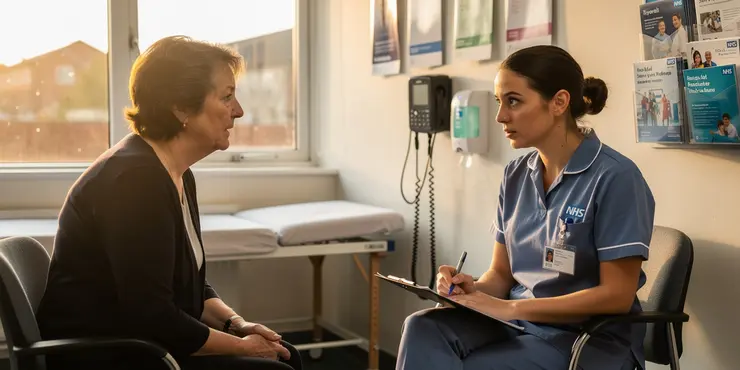
What are the symptoms of norovirus?
Relevance: 54%
-
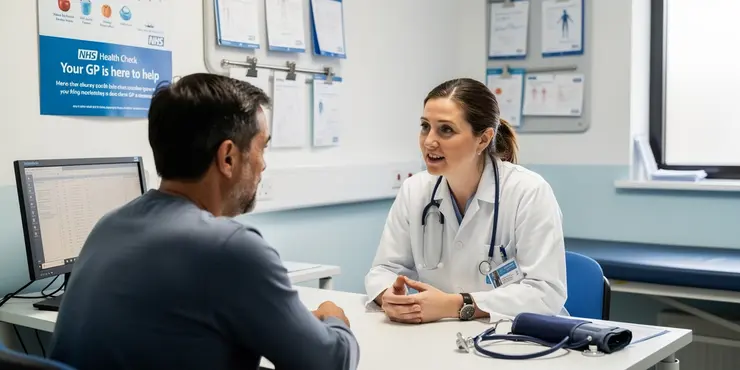
Can antibiotics treat norovirus?
Relevance: 52%
-

How common is norovirus in the UK?
Relevance: 51%
-
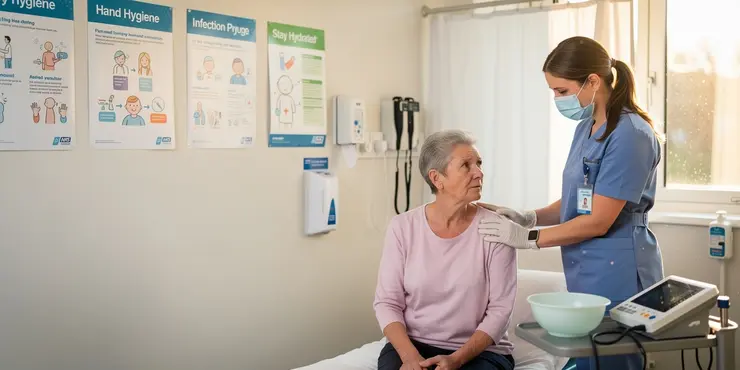
What should I do if I have norovirus?
Relevance: 50%
-

How to treat diarrhoea and vomiting at home (adults and children aged 5 and over) | NHS
Relevance: 49%
-
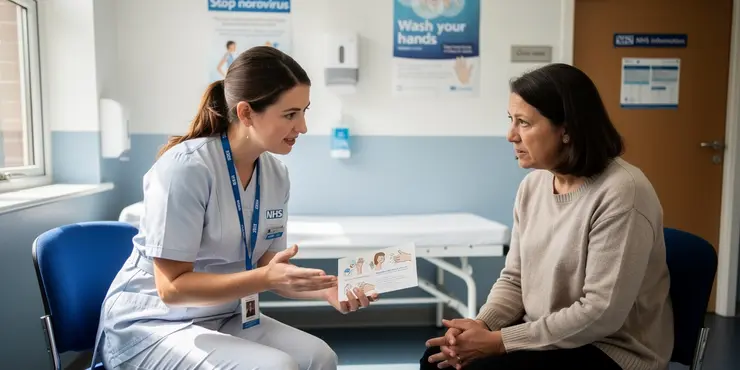
Can I go to work or school if I have norovirus?
Relevance: 48%
-
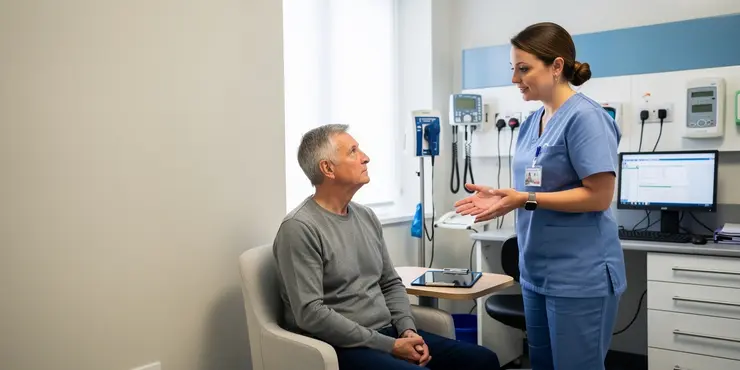
How long do norovirus symptoms last?
Relevance: 48%
-
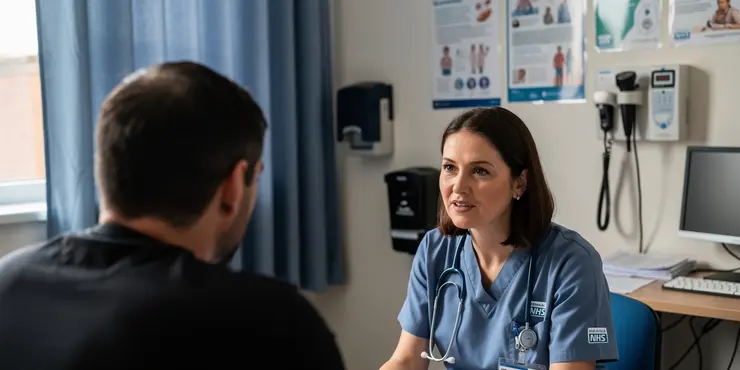
How is norovirus spread?
Relevance: 47%
-
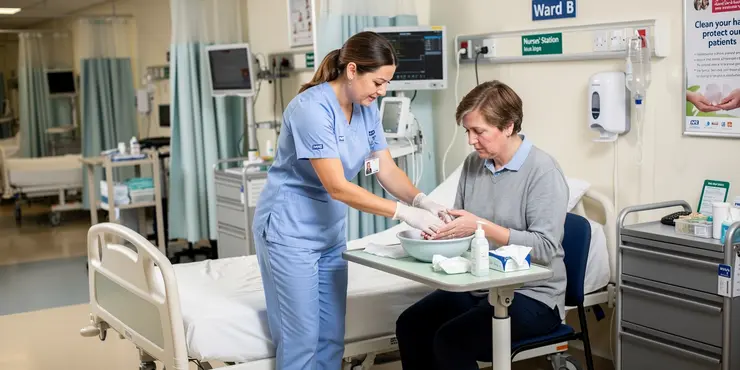
Is norovirus more common in winter?
Relevance: 47%
-
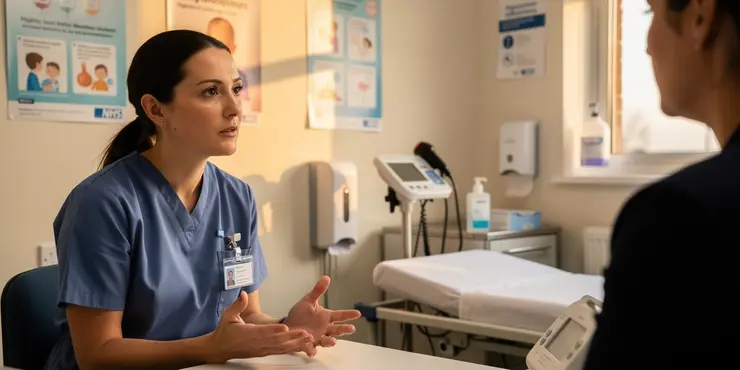
Can I get norovirus more than once?
Relevance: 46%
-
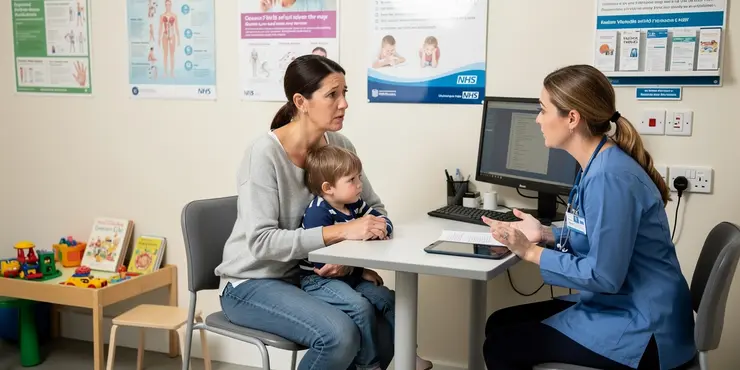
When should I seek medical advice for norovirus?
Relevance: 45%
-
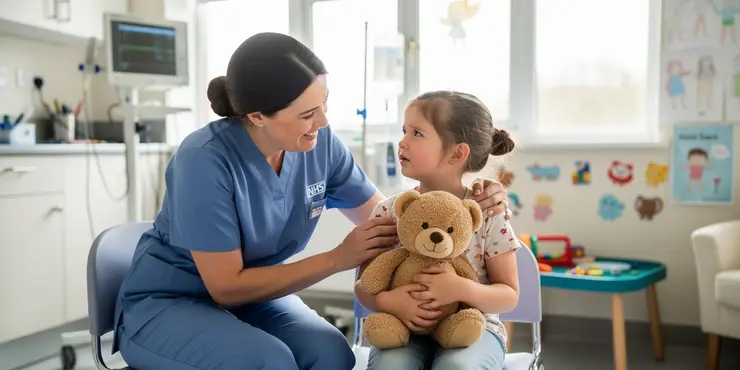
Is there a vaccine for norovirus?
Relevance: 44%
-
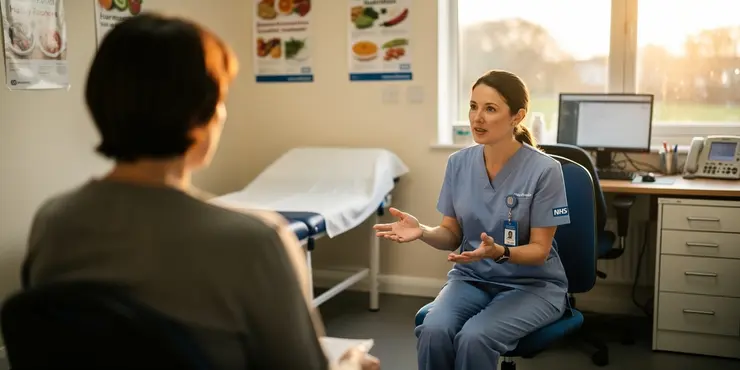
What should I eat or drink if I have norovirus?
Relevance: 43%
-
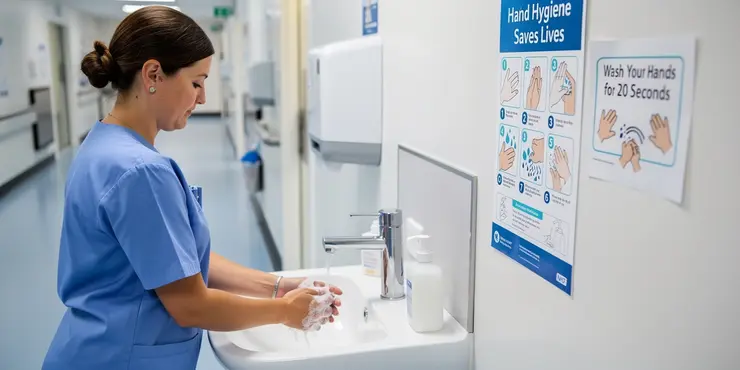
How can I prevent norovirus infection?
Relevance: 43%
-
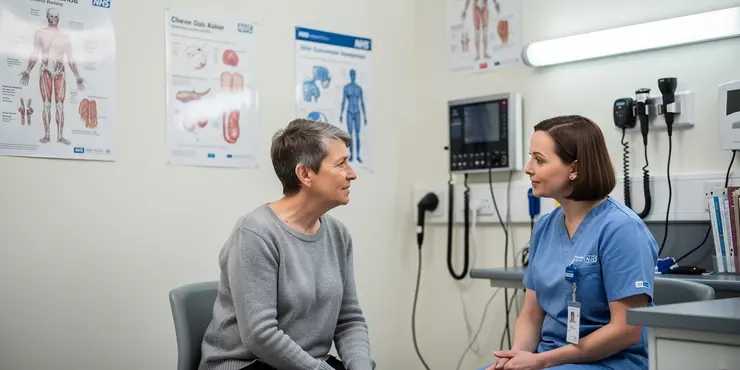
Where can I find more information about norovirus?
Relevance: 40%
-
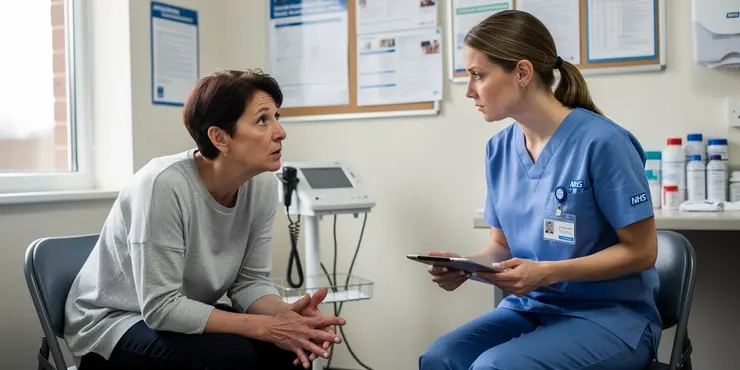
What are bed bugs?
Relevance: 34%
-
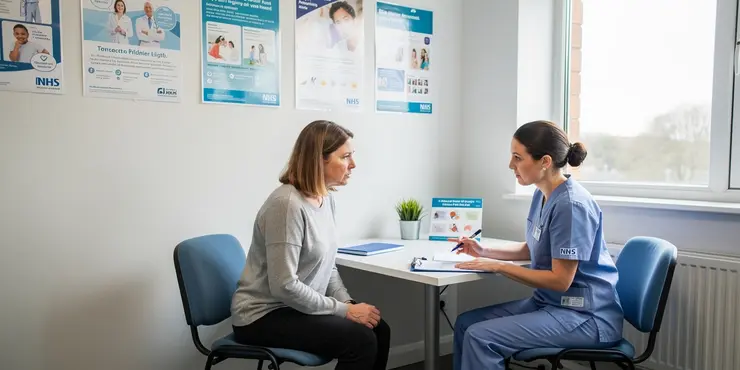
Are bed bugs dangerous?
Relevance: 33%
-

Bed Bugs / bedbugs
Relevance: 33%
-
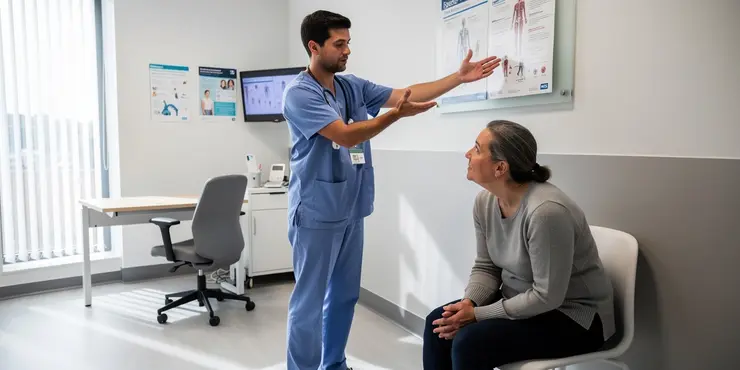
What are the signs of a bed bug infestation?
Relevance: 31%
-
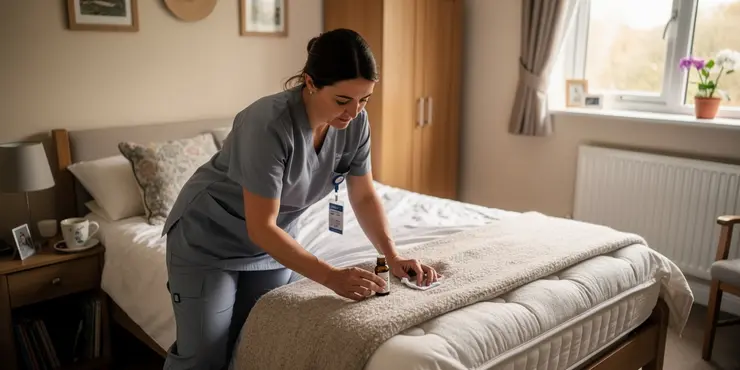
Are there any natural remedies for bed bugs?
Relevance: 31%
-
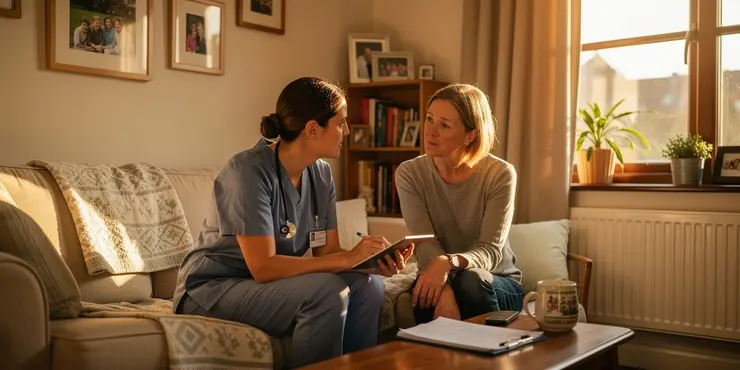
Do bed bugs only live in beds?
Relevance: 31%
-
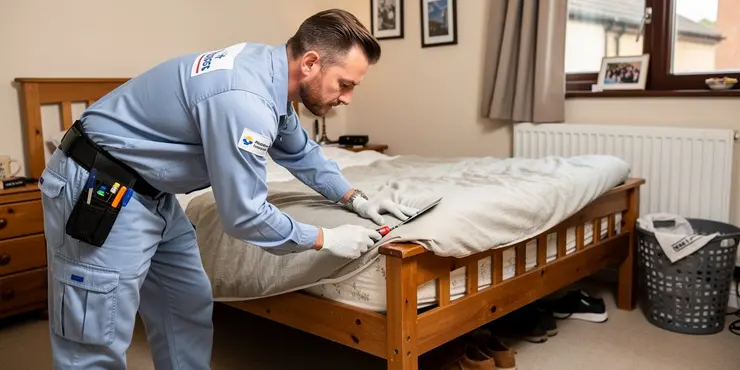
Why are bed bugs so difficult to eliminate?
Relevance: 31%
-

How do bed bugs enter my home?
Relevance: 31%
-
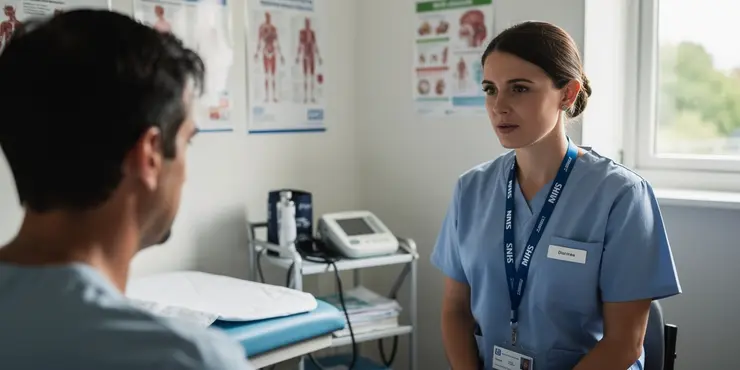
Diarrhoea - How to stop it? | UHL NHS Trust
Relevance: 30%
-

Can I get rid of bed bugs myself?
Relevance: 30%
-
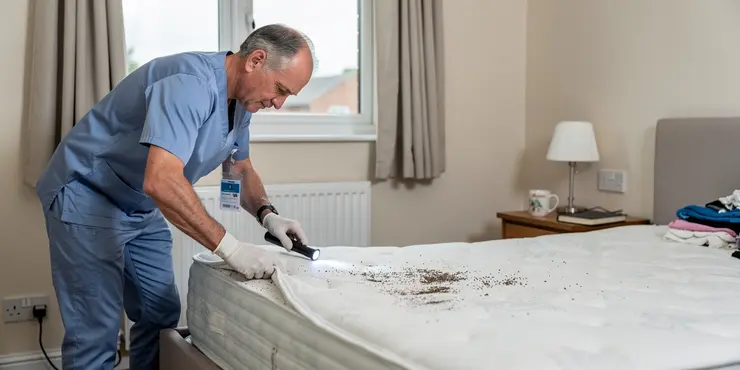
Will disposing of my mattress get rid of bed bugs?
Relevance: 30%
-
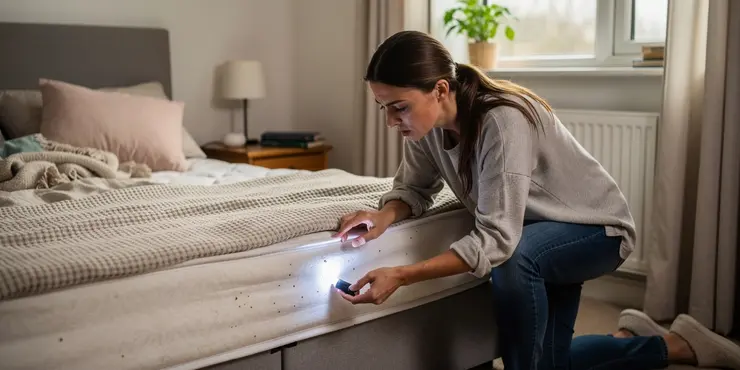
What should I do if I find bed bugs in my house?
Relevance: 30%
-

How can I tell if bites are from bed bugs?
Relevance: 29%
-
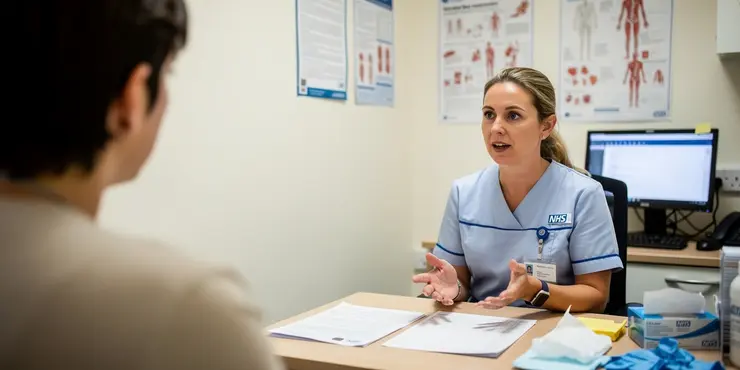
How can I prevent bringing bed bugs into my home?
Relevance: 29%
-

What items should I wash if I have bed bugs?
Relevance: 29%
-

How much does professional bed bug extermination cost in the UK?
Relevance: 28%
-

How long does a bed bug extermination process take?
Relevance: 27%
-
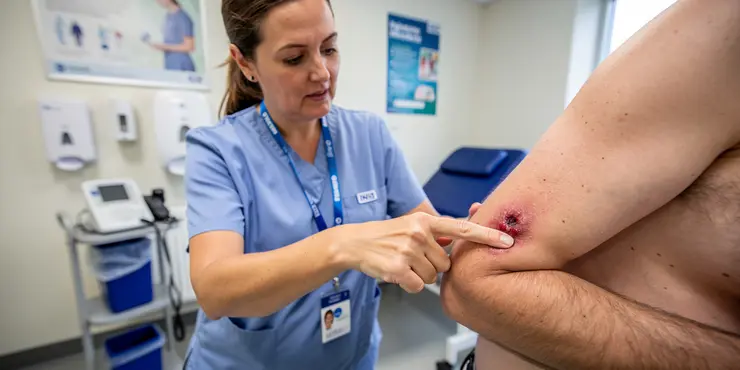
MRSA Bug
Relevance: 22%
-

What are common side effects of Wegovy?
Relevance: 20%
-

Can Ozempic lead to dehydration?
Relevance: 17%
-

What are common side effects of Ozempic?
Relevance: 17%
What is Norovirus? (Diarrhoea and Vomiting Bug)
Introduction
Norovirus, often referred to as the "winter vomiting bug," is a highly contagious virus that causes gastroenteritis, an inflammation of the stomach and intestines. It is one of the leading causes of diarrhoea and vomiting outbreaks, particularly during the colder months. This virus can affect people of all ages and is notably problematic in communal settings such as hospitals, schools, and care homes.Symptoms
The primary symptoms of norovirus include sudden onset of nausea, projectile vomiting, and watery diarrhoea. Some people may also experience mild fever, headache, stomach cramps, and muscle aches. Symptoms typically begin 12 to 48 hours after exposure to the virus and can last between one to three days. In some cases, dehydration can occur, especially in vulnerable populations such as the elderly and young children.Transmission
Norovirus is highly infectious and spreads rapidly through contact with contaminated food, water, surfaces, or an infected person. Consuming food prepared by someone with the virus, touching contaminated surfaces, or close contact with an infected individual can lead to infection. The virus is resilient and can survive on surfaces for days, making it crucial to maintain good hygiene practices.Prevention
Preventing the spread of norovirus involves rigorous hygiene and sanitation measures. Wash hands thoroughly with soap and water, particularly after using the toilet and before eating or preparing food. Disinfect surfaces, especially in high-touch areas like kitchens and bathrooms, with effective cleaning agents. If you are infected, stay at home and avoid preparing food for others until at least 48 hours after symptoms have ceased to prevent spreading the virus.Treatment
There is no specific treatment for norovirus; management focuses on relieving symptoms and preventing dehydration. Drink plenty of fluids to replace lost electrolytes—solutions like oral rehydration salts are particularly effective. Clear fluids such as water, broths, and diluted fruit juices are advisable. Over-the-counter medications may help alleviate symptoms, but it is vital to consult a healthcare professional if symptoms persist or worsen.When to Seek Medical Help
While most cases of norovirus resolve without complications, certain symptoms necessitate medical attention. Seek help if you experience severe dehydration signs (e.g., excessive thirst, decreased urination, dizziness), prolonged symptoms lasting more than three days, or if a vulnerable person (infant, elderly, or those with compromised immune systems) is affected. The NHS provides resources and guidance on managing symptoms and when to seek care.Conclusion
Norovirus is a common but preventable cause of gastroenteritis. By understanding the symptoms, modes of transmission, and prevention strategies, individuals can significantly reduce their risk of infection. Adhering to good hygiene practices and timely medical consultation can help manage and control outbreaks, ensuring better public health outcomes in the UK.What is Norovirus? (Diarrhoea and Vomiting Bug)
Introduction
Norovirus is a virus that makes your tummy and intestines sick. People sometimes call it the "winter vomiting bug." It's easy to catch and can make you throw up or have a tummy bug, especially in winter. Anyone can get it. It spreads quickly in places like hospitals, schools, and care homes.Symptoms
Signs that you have norovirus are feeling sick, throwing up, and runny poo. You might also have a mild fever, headache, tummy ache, and sore muscles. These can start 12 to 48 hours after catching the virus and can last for 1 to 3 days. Older people and little kids might get very thirsty if they don’t drink enough liquids.Transmission
Norovirus spreads very easily. You can catch it from food or water that has the virus, touching things that have the virus on them, or being close to someone who is sick. The virus can live on things for days, so keep washing your hands and cleaning surfaces to stop it spreading.Prevention
To stop norovirus from spreading, wash your hands well with soap and water, especially after the toilet and before eating. Clean things like kitchen counters and bathroom surfaces with strong cleaners. If you are sick, stay at home and do not make food for others until you feel better for at least 2 days.Treatment
There is no medicine to cure norovirus. You can only try to feel better and stay hydrated. Drink lots of liquids, like water, soups, or watered-down fruit juice. Special drinks with rehydration salts can help too. If you don't feel better or get worse, see a doctor.When to Seek Medical Help
Most people get better on their own, but sometimes you need a doctor. If you or someone else is very thirsty, can't pee much, feels dizzy, or if the sickness lasts more than 3 days, see a doctor. Babies, older people, and people who are weak need to be extra careful. The NHS can tell you more about when to get help.Conclusion
Norovirus can make you very sick, but you can stop it from spreading. Know the signs and how it spreads. Wash your hands and keep things clean. If you get sick, rest and drink fluids. See a doctor if you don't get better. Staying clean and careful helps everyone stay healthy.Frequently Asked Questions
What is norovirus?
Norovirus, also known as the winter vomiting bug, is a highly contagious virus that causes vomiting and diarrhea. It is one of the most common stomach bugs in the United Kingdom.
How is norovirus spread?
Norovirus is spread through close contact with someone who has the infection, touching contaminated surfaces or objects, and consuming contaminated food or water.
What are the symptoms of norovirus?
The main symptoms include sudden onset of nausea, projectile vomiting, watery diarrhea, and stomach cramps. Other symptoms may include a slight fever, headaches, and aching limbs.
How long do norovirus symptoms last?
Symptoms typically last between 1 to 3 days, but in some cases, they may last longer, particularly in young children, the elderly, or those with weakened immune systems.
How can I prevent norovirus infection?
To prevent the spread of norovirus, practice good hand hygiene by washing hands thoroughly with soap and water, disinfect contaminated surfaces, and wash any contaminated laundry thoroughly.
Is there a vaccine for norovirus?
No, currently there is no vaccine available to prevent norovirus infection.
What should I do if I have norovirus?
If you have norovirus, stay hydrated by drinking plenty of fluids, take over-the-counter medications to relieve symptoms if needed, stay at home to avoid spreading the virus, and wash your hands regularly.
Can I go to work or school if I have norovirus?
No, you should stay at home and avoid going to work or school until at least 48 hours after your symptoms have stopped, as norovirus is highly contagious.
When should I seek medical advice for norovirus?
Seek medical advice if you or someone you are caring for has severe dehydration, prolonged symptoms, or if there are concerns due to underlying health conditions. Most cases can be managed at home.
Can antibiotics treat norovirus?
No, antibiotics do not work on viruses, including norovirus. Treatment focuses on relieving symptoms and staying hydrated.
How is norovirus diagnosed?
Norovirus is typically diagnosed based on symptoms alone. In certain circumstances, stool samples may be tested to confirm the presence of the virus.
What should I eat or drink if I have norovirus?
Drink plenty of fluids like water and oral rehydration solutions to stay hydrated. Eat bland foods such as toast, rice, bananas, and other items that are easy on the stomach once you start to feel better.
Can I get norovirus more than once?
Yes, it is possible to get norovirus more than once, as immunity to the virus does not last long and there are many different strains of the virus.
Where can I find more information about norovirus?
You can find more information on the NHS website or by contacting your local healthcare provider.
How common is norovirus in the UK?
Norovirus is very common in the UK, especially during the winter months, though it can occur at any time of the year.
What is norovirus?
Norovirus is a germ that can make you feel sick. It often causes tummy aches and makes you throw up or have runny poop. It spreads very easily from person to person.
To help stop the spread, remember to wash your hands with soap and water often. If you feel unwell, tell an adult or a doctor. They can help you feel better.
Norovirus is a germ that makes your tummy upset. Some people call it the winter vomiting bug. It can make you throw up and have runny poo. Lots of people in the United Kingdom get this bug.
How does norovirus spread?
Norovirus is a germ that makes people sick. It spreads very easily. Here are some ways it can spread:
- If you eat food or drink water with the virus in it.
- If you touch things that have the virus on them and then put your hands in your mouth.
- If you are close to someone who is sick and they cough or sneeze near you.
To stay healthy, wash your hands with soap and water. It is also good to clean surfaces and stay away from people who are sick.
Tools like hand sanitizers and cleaning wipes can help keep things clean. They can help stop the spread of the virus.
Norovirus is a germ that can make you sick. You can catch it from being near someone who is sick, touching dirty things, or eating and drinking dirty food or water.
What happens if you get norovirus?
Norovirus can make you feel sick. Here are some things that might happen:
- You might feel like you need to throw up.
- You might have diarrhea, which is runny poo.
- Your tummy might hurt a lot.
- You might have a headache.
- You might feel tired and have a fever.
To feel better, drink lots of water and rest. Ask an adult to help you if you feel really bad.
The main signs you are sick are feeling suddenly sick in your tummy, throwing up, having runny poop, and tummy pains. You might also have a little fever, a headache, and your arms and legs might hurt.
How long do norovirus symptoms last?
Norovirus makes you feel sick. It can cause tummy pain, throwing up, and diarrhea. The symptoms usually last for about 1 to 3 days.
If you are sick longer, talk to a doctor. It is important to drink lots of water to stay hydrated.
Having a friend or family member help you is a good idea. Using a calendar to track your symptoms can be helpful too.
Feeling sick can last for 1 to 3 days. But sometimes, it can last longer. This can happen to little kids, older people, or people who are not very strong.
How can I stop getting sick from norovirus?
To stop norovirus from spreading, wash your hands really well. Use soap and water. Clean surfaces that might have germs. Wash clothes that are dirty carefully.
Can you get a vaccine to stop norovirus?
No, there is no vaccine that can stop norovirus. Norovirus can make you feel very sick with vomiting and diarrhea.
To stay safe, you can:
- Wash your hands with soap and water.
- Eat food that is cooked well.
- Clean surfaces often.
Ask someone you trust to help if you need more information.
No, there is no shot to stop norovirus right now.
What should I do if I am sick with norovirus?
If you have norovirus, you might feel very sick. Here are some simple steps to help you feel better:
- Drink lots of water: Make sure to drink water, juice, or soup so you don't get thirsty.
- Rest: Try to sleep and rest your body.
- Eat small meals: Eat little meals like toast or crackers if you are hungry.
- Wash your hands: Wash your hands often to stop spreading the bug to others.
- Tell an adult: Let a grown-up know you feel sick, so they can help you.
If you have a hard time understanding or remembering these steps, you can:
- Ask someone to explain them to you.
- Use pictures or drawings to help you remember.
- Set reminders on a phone to drink water and rest.
If you have the norovirus, here are some things you should do:
Drink lots of water and fluids to stay healthy. You can take medicine from the store if you feel sick. Stay at home so you don't make others sick. Wash your hands often to keep germs away.
Here are some helpful things to use:
- A big water bottle to remind you to drink more.
- A reminder on your phone to wash your hands.
- A notepad to write down when you take your medicine.
Can I go to work or school if I have norovirus?
If you have norovirus, do not go to work or school. Norovirus is a germ that makes people sick. It can spread to other people very easily. Stay at home until you feel better. It may take a few days.
Here are some tips to help you:
- Wash your hands often with soap and warm water.
- Drink water to stay hydrated.
- Rest as much as you can.
If you need more help, ask a parent or a doctor.
No, you should stay at home. Do not go to work or school. Wait until at least 48 hours after you feel better. Norovirus spreads easily.
When should I ask a doctor about norovirus?
Talk to a doctor if you or the person you are looking after is very dehydrated, feels sick for a long time, or has other health problems. Most people can get better at home.
Can medicine help with norovirus?
Norovirus is a type of virus that makes you feel sick. Antibiotics are special medicines that fight bacteria, not viruses. So, antibiotics do not work on viruses like norovirus.
What can you do to feel better?
- Drink lots of water to stay hydrated.
- Get plenty of rest.
- Eat simple foods like toast or crackers if you can.
If you feel very sick, ask a doctor for help. It's okay to ask for someone you trust to help you understand the information.
No, antibiotics don't work on viruses like norovirus. To feel better, focus on easing symptoms and drinking lots of fluids.
How do doctors know if someone has norovirus?
Doctors find out if someone has norovirus by looking at the person's symptoms and sometimes doing tests.
Here are some steps that help:
- Doctors ask about any recent vomiting or diarrhea.
- They check if people around the person are also sick.
- Sometimes doctors take a stool (poop) sample to test in a lab.
It's always good to tell adults if you feel sick or have symptoms like vomiting or diarrhea. They can help you see a doctor.
Doctors usually know if someone has norovirus by looking at the symptoms. Sometimes, they might test a poo sample to be sure the virus is there.
What should I eat or drink if I have norovirus?
If you feel sick with norovirus, here is what you can eat and drink:
- Drink lots of water or clear drinks to stay hydrated. This means your body has enough water.
- Eat plain foods like toast, bananas, or rice. These foods are gentle on your belly.
- Don't eat spicy or rich foods because they may upset your stomach more.
If you need help, ask an adult or use picture cards to know what to eat and drink.
Drink lots of water or special drinks like oral rehydration solutions to help your body stay happy and healthy. When you start feeling better, eat simple foods like toast, rice, bananas, or other foods that are gentle on your tummy.
Can I catch norovirus again?
Yes, you can catch norovirus more than once. This is because your body can forget how to fight it after a while. But don't worry, it usually goes away on its own after a few days.
To feel better, you can:
- Drink lots of water to stay hydrated.
- Rest as much as you can.
- Eat simple foods like toast or bananas.
If you feel very sick, tell an adult or see a doctor.
Yes, you can catch norovirus more than one time. This is because your body doesn't stay protected against it for long. Also, there are many types of norovirus.
If you have trouble reading, try using a ruler to help keep your place on the page. You can also ask someone to read with you or use audiobooks.
Where can I learn more about norovirus?
Norovirus is a bug that can make your tummy feel upset. If you want to learn more about it, you can:
- Ask a grown-up you trust to help you find safe websites.
- Look for books about it in the library.
- Use a computer or tablet to watch videos that explain it simply.
Remember, asking an adult to help you understand is always a good idea!
You can find more help on the NHS website. You can also call or visit your local doctor or hospital for more information.
How often do people in the UK get norovirus?
Norovirus is a type of germ that makes your tummy feel bad.
In the UK, many people get norovirus, especially in the winter months. This is when the weather is colder, and more people stay inside together.
Norovirus spreads easily. It can spread from touching things that have the germ on them or from being close to someone who has it.
If you want to know more or need help, you can ask an adult or look at a simple website about germs and staying clean.
Norovirus is a germ that makes people sick. It happens a lot in the UK, mostly in the winter, but it can happen any time.
Useful Links
This website offers general information and is not a substitute for professional advice.
Always seek guidance from qualified professionals.
If you have any medical concerns or need urgent help, contact a healthcare professional or emergency services immediately.
Some of this content was generated with AI assistance. We’ve done our best to keep it accurate, helpful, and human-friendly.
- Ergsy carfully checks the information in the videos we provide here.
- Videos shown by Youtube after a video has completed, have NOT been reviewed by ERGSY.
- To view, click the arrow in centre of video.
- Most of the videos you find here will have subtitles and/or closed captions available.
- You may need to turn these on, and choose your preferred language.
- Go to the video you'd like to watch.
- If closed captions (CC) are available, settings will be visible on the bottom right of the video player.
- To turn on Captions, click settings .
- To turn off Captions, click settings again.
More Items From Ergsy search
-

What is norovirus? (Diarrhoea and vomiting bug) | NHS
Relevance: 100%
-

What is norovirus? (Diarrhoea and vomiting bug) | NHS
Relevance: 96%
-

Advice for diarrhoea and vomiting
Relevance: 66%
-

My child has vomiting and diarrhoea - what do I do?
Relevance: 58%
-

What are the symptoms of norovirus?
Relevance: 54%
-

Can antibiotics treat norovirus?
Relevance: 52%
-

How common is norovirus in the UK?
Relevance: 51%
-

What should I do if I have norovirus?
Relevance: 50%
-

How to treat diarrhoea and vomiting at home (adults and children aged 5 and over) | NHS
Relevance: 49%
-

Can I go to work or school if I have norovirus?
Relevance: 48%
-

How long do norovirus symptoms last?
Relevance: 48%
-

How is norovirus spread?
Relevance: 47%
-

Is norovirus more common in winter?
Relevance: 47%
-

Can I get norovirus more than once?
Relevance: 46%
-

When should I seek medical advice for norovirus?
Relevance: 45%
-

Is there a vaccine for norovirus?
Relevance: 44%
-

What should I eat or drink if I have norovirus?
Relevance: 43%
-

How can I prevent norovirus infection?
Relevance: 43%
-

Where can I find more information about norovirus?
Relevance: 40%
-

What are bed bugs?
Relevance: 34%
-

Are bed bugs dangerous?
Relevance: 33%
-

Bed Bugs / bedbugs
Relevance: 33%
-

What are the signs of a bed bug infestation?
Relevance: 31%
-

Are there any natural remedies for bed bugs?
Relevance: 31%
-

Do bed bugs only live in beds?
Relevance: 31%
-

Why are bed bugs so difficult to eliminate?
Relevance: 31%
-

How do bed bugs enter my home?
Relevance: 31%
-

Diarrhoea - How to stop it? | UHL NHS Trust
Relevance: 30%
-

Can I get rid of bed bugs myself?
Relevance: 30%
-

Will disposing of my mattress get rid of bed bugs?
Relevance: 30%
-

What should I do if I find bed bugs in my house?
Relevance: 30%
-

How can I tell if bites are from bed bugs?
Relevance: 29%
-

How can I prevent bringing bed bugs into my home?
Relevance: 29%
-

What items should I wash if I have bed bugs?
Relevance: 29%
-

How much does professional bed bug extermination cost in the UK?
Relevance: 28%
-

How long does a bed bug extermination process take?
Relevance: 27%
-

MRSA Bug
Relevance: 22%
-

What are common side effects of Wegovy?
Relevance: 20%
-

Can Ozempic lead to dehydration?
Relevance: 17%
-

What are common side effects of Ozempic?
Relevance: 17%


